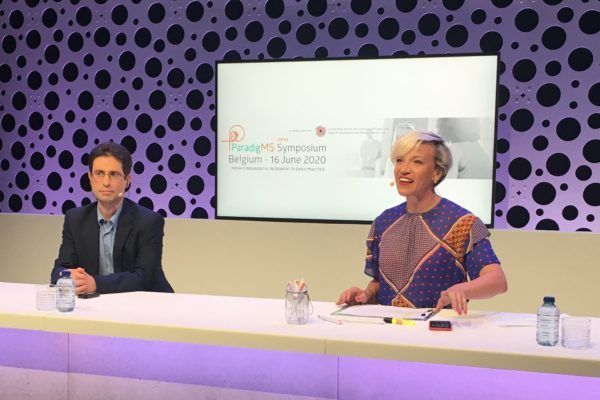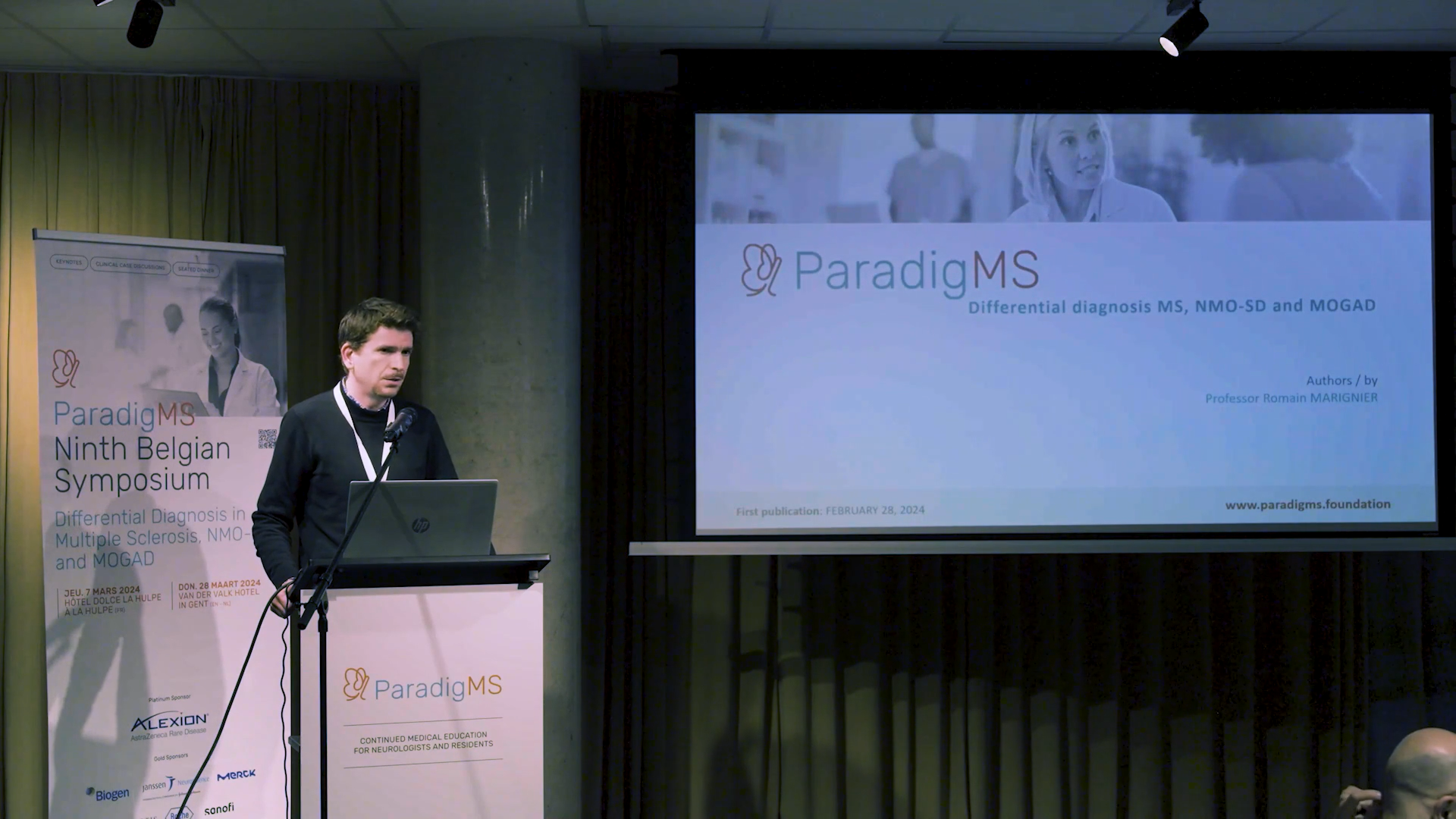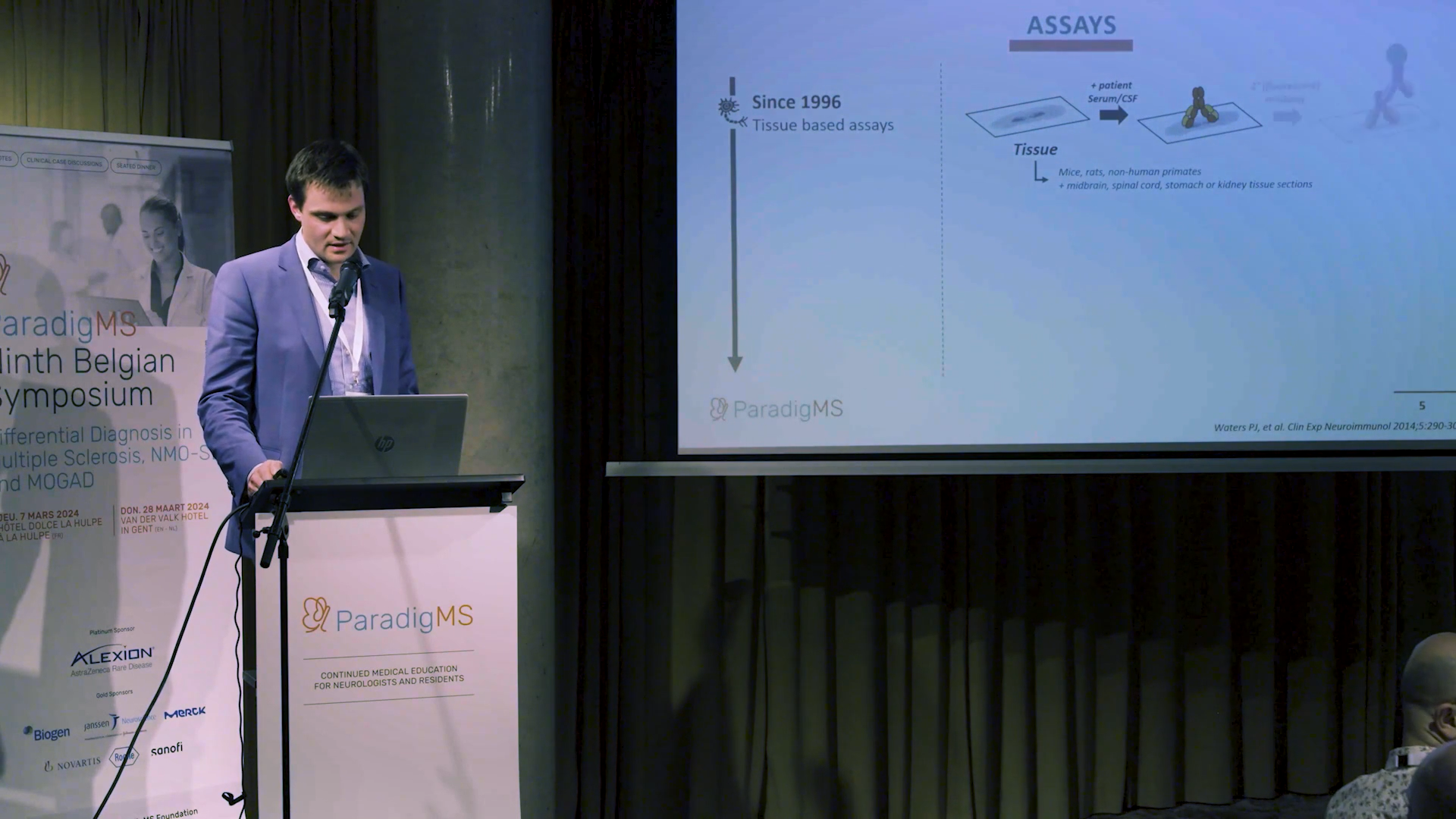Differential Diagnosis in MultipleSclerosis, NMOSD, and MOGAD – Report of the Ninth Belgian Symposium
Summary – Abstract
Multiple sclerosis (MS), neuromyelitis optica spectrum disorder (NMOSD), and myelin
oligodendrocyte glycoprotein-associated disease (MOGAD) are demyelinating diseases sharing
common clinical and radiological features, but differing in terms of aetiology, natural history,
and treatment needs. Making an accurate differential diagnosis between these distinct
disorders is crucial for the good prognosis of patients. Expert panels issue regularly updated
guidelines to assist neurologists in identifying key diagnostic elements with a high positive
predictive value for each disease.
These guidelines also alert on the presence of red flags, namely biological, clinical, or
radiological criteria prompting thorough investigations to exclude competing diagnoses.
Biological findings highlighting an intrathecal production of antibodies, either qualitatively
(presence of oligoclonal bands in cerebrospinal fluid) or quantitatively (elevated kappa free
light chain index), are indicative of MS. A diagnosis of NMOSD or MOGAD can be ascertained
after tissue-based or cell-based assays have demonstrated the presence of highly specific
biomarkers in serum (anti-aquaporin 4 antibodies for NMOSD, anti-myelin oligodendrocyte
glycoprotein antibodies for MOGAD).
Despite similar disease presentations, particular attention should be given to clinical and
radiological features suggestive of NMOSD (very severe posterior optic neuritis with chiasmal
involvement, very severe to life-threatening longitudinally extensive transverse myelitis [LETM]
preceded by prodromal pruritus, area postrema and diencephalic syndrome, bright spotty lesions) or MOGAD (very severe bilateral anterior optic neuritis preceded by prodromal
headache, severe LETM, encephalic syndrome, H-sign, vanishing brain and cord lesions). In MS,
the clinical and radiological picture usually includes less severe symptoms, a rare co-existence
of optic neuritis and transverse myelitis, and frequent encephalic or brain attacks associated
with a characteristic neuroimaging pattern (presence of MS-like white matter lesions).
Response to steroid therapy (very poor recovery in NMOSD, dramatic recovery in MOGAD) and
demographic data (NMOSD is the most frequent demyelinating condition in African, Caribbean,
or Asian populations; MOGAD in paediatric populations) can also guide the diagnosis. New
criteria could be added to the already powerful toolkit available to assist neurologists in the
establishment of an accurate differential diagnosis between the most prevalent acquired
demyelinating disorders.
Acknowledgements
The report has been created by medical writers G. Behets and C. Iltis supervised by W. Zonta (Akkodis Belgium) and based on presentations by Prof R. Marginier (Neurological Hospital Lyon), Dr. L. Lutteri (CHU Liège) and Dr. Oyaert (UGent) at the 9th ParadigMS Belgian Symposium in March 2024 and clinical case presentations by Dr. S. Dauby and Dr. E. Lommers (CHU Liège) and Dr. H. Bachmann, Dr. C. Dekeyser, Dr. H. Verhelst (UGent) at the same Symposium. The Symposium was organised in two editions in La Hulpe (7th March 2024) and Gent (28th March 2024) and chaired by Prof. Laureys (UGhent), Prof Dive (CHULiège) and Prof Van Wijmeersch (UMSC Hasselt). The project was coordinated by S. De Corte (ParadigMS Foundation).







